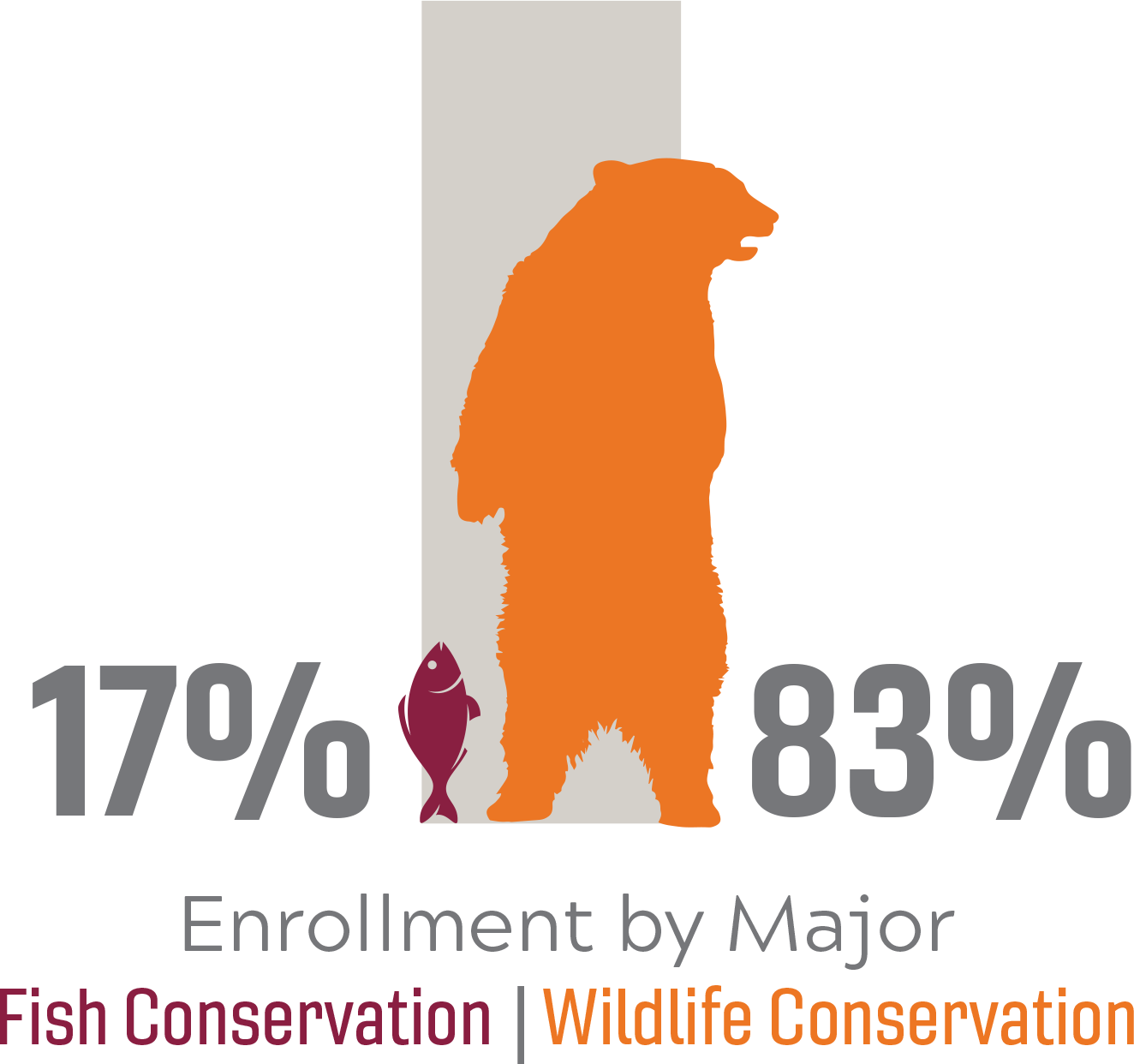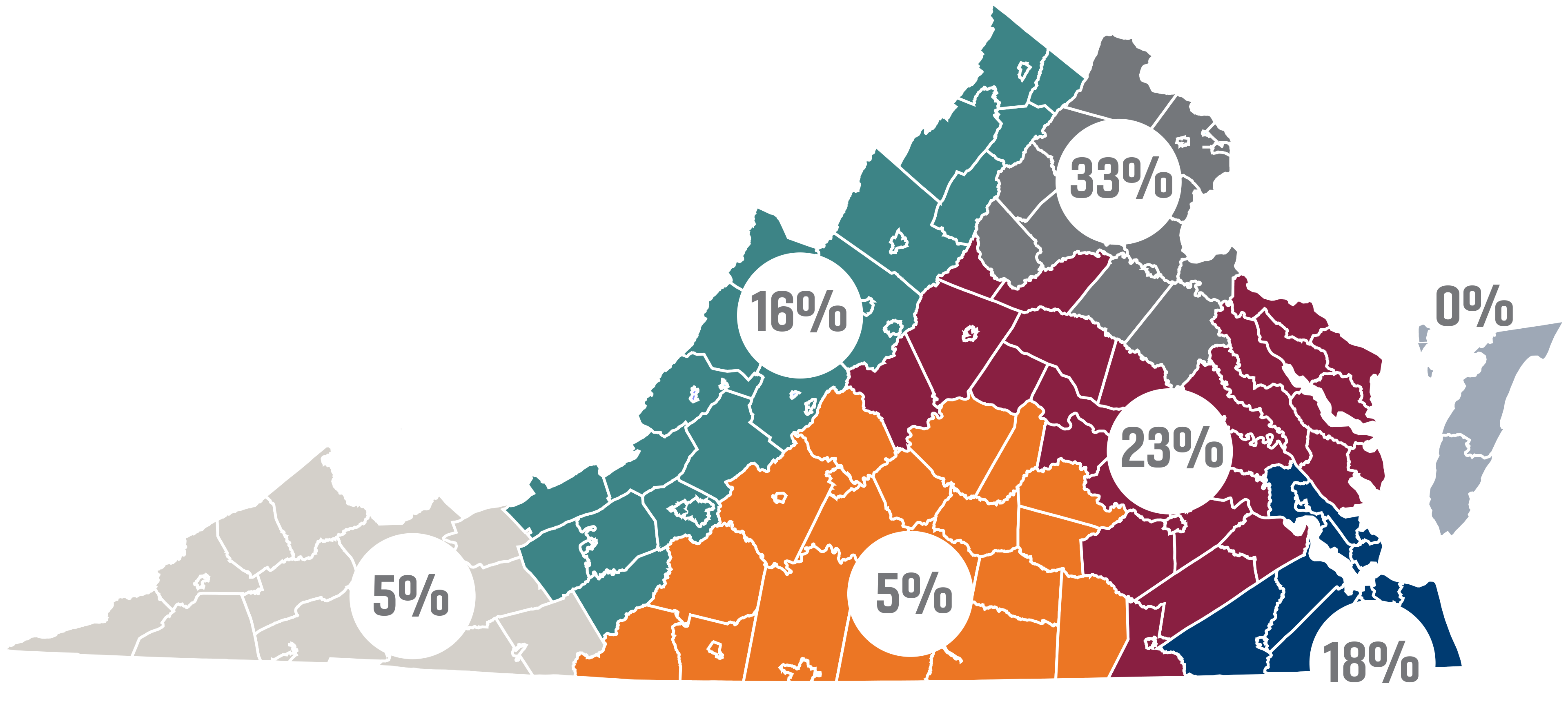A message from the head of the Department of Fish and Wildlife Conservation
November 15, 2018
Joel W. Snodgrass

Welcome to the Department of Fish and Wildlife Conservation. The department strives to significantly contribute to fish and wildlife resource conservation and management at state, national, and international levels through integrated programs in research, teaching, and engagement. We are passionate about natural resource conservation and management, and about making a difference in how our society values sustainable natural resources. Through our commitment to excellence in research, teaching, and engagement, we are training the next generation of leaders in natural resource conservation and management, and influencing decisions and policy in Virginia, the nation, and the world.
We offer a bachelor of science degree in fish and wildlife conservation with majors in fish conservation or wildlife conservation. At the graduate level, we offer a master of science and a doctor of philosophy in fisheries and wildlife sciences. All of our programs stress experiential learning and development of mentoring relationships between faculty and students. Our students and alumni occupy leadership roles in state agencies and academic institutions in nearly all 50 states and abroad, and in many private companies.
Our scientific expertise is wide-ranging and we value collaboration across the natural and social sciences. Because we believe that decisions and policy concerning the management of natural resources should be based on the best available science, our faculty, staff, and students focus on both sound science and translation of scientific results into policy and management. We value diversity and strive to create a welcoming and inclusive environment here at Virginia Tech and anywhere our work takes us. Our work occurs in Virginia, throughout the United States, and in many countries around the world. Our strong partnerships with a range of federal and state agencies and nongovernment organizations in the U.S. and abroad benefit both our students and our partners.
Did you know?
- With more than $1.9 million in total external funding per tenure/tenure-track faculty member in the past four years, our department ranks second among all academic departments at Virginia Tech.
- Partnerships with federal and state agencies, such as the U.S. Fish and Wildlife Service, U.S. Geological Survey, National Park Service, and Virginia Department of Game and Inland Fisheries, as well as university centers and institutes, afford students and faculty opportunities to conduct research, join project teams, and solve resource management problems.
- Our faculty conduct research critical to managing fisheries in large rivers from the New River in Virginia to the Amazon River in South America to the Yangtze River in China.
- We have one of the largest collections of experts in stream fish ecology in the world.
- Our wildlife biologists study carnivores including lions, tigers, cougars, and ocelots in Central and South America, Africa, and Asia. Here at home, our faculty study coyotes and foxes and their impacts on game and endangered species.
- Each year, our Freshwater Mollusk Conservation Center raises thousands of juvenile mussels, including several endangered species, for release into rivers to help restore native populations.
- Researchers in our shorebirds program work up and down the Atlantic and Gulf coasts, along the shores of prairie rivers and lakes, and internationally to promote the conservation of seabirds and shorebirds, including the endangered piping plover.
- Many of our faculty and graduate students are affiliated with Virginia Tech’s Global Change Center. Directed by department faculty member Professor William Hopkins, the center addresses challenges posed by the interaction of climate change, pollution, invasive species, disease, and habitat loss.
- Students taking Wildlife Field Techniques participate in a 10-day residential program at the Mountain Lake Biological Station, where they practice orienteering, camera trapping, setting mist nets, and capturing, tagging, and releasing wildlife.
Fish and Wildlife Conservation
by the numbers
2018 Fall Enrollment
241 Undergraduates


In-state Student Residency by Region (82% of Total Students)

FreshmAn Admission
Applied
Offered
Enrolled
Offered Rate
Yield
Full-Time Faculty
17 Tenure | Tenure-Track
14 Scientists | Postdocs
31 TOTAL





